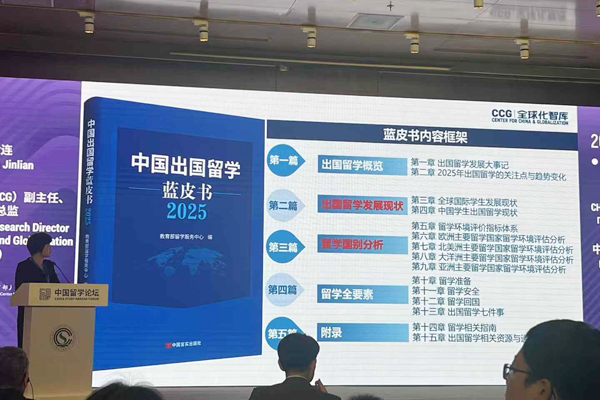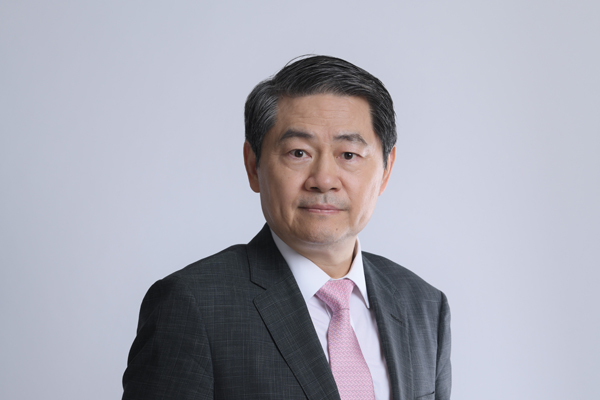[凤凰网]全球战“疫”观察14 | 如何避免全球经济衰退
2020年4月10日新冠疫情席卷全球,联合国秘书长古特雷斯称其为“自第二次世界大战以来最严重的全球性危机。”对疫情可能引发全球经济衰退的担心也在愈演愈烈,要想尽快走出危机,各国之间的通力协作势在必行。如何真正实现各个经济体之间的有效合作?全球化智库(CCG)联合凤凰卫视推出抗疫特别系列节目,多维度视角解读疫情下的政治经济文化。
文字实录 | 如何避免全球经济衰退?
本期嘉宾介绍
杜大伟(David dollar),全球化智库特邀嘉宾,布鲁金斯学会约翰·桑顿中国中心资深研究员
主持人:新冠疫情席卷全球,联合国秘书长古特雷斯称其为“自第二次世界大战以来最严重的全球性危机。”对疫情可能引发全球经济衰退的担心也在愈演愈烈,要想尽快走出危机,各国之间的通力协作势在必行。如何真正实现各个经济体之间的有效合作,我们今天请到的专家曾在世界银行工作了二十年,听听看他的观点。
【疫情对世界经济的影响&各国如何合作?】
主持人: david, you worked for the world bank for a long time, focusing on world development and equality. How do you evaluate this pandemic? Its impact on the world economy
(大卫,你为世界银行工作了很长一段时间,致力于世界发展和平等。你如何评价这次疫情对世界经济的影响?)
杜大伟:So far, most of the spread of the disease has been in China first. And then in europe and North America, we don’t see much in Africa, for example. We’re only starting to see it in Latin America, but I suspect it’s gonna spread everywhere. Probably some of these developing countries are not testing enough. So the numbers are not really accurate. India does not report a lot of cases, but obviously they’re worried. So they’re shutting down their economy quite dramatically. So unfortunately, I think we’ll probably see a very serious public health crisis in the developing world. That’s a little speculative, but that seems likely.
(到目前为止,疫情的主要传播先是在中国,然后在欧洲和北美,在非洲我们看不到太多。在拉丁美洲才刚刚开始发现到它的传播,但我怀疑它会蔓延到世界各地。可能一些发展中国家没有进行足够的检测,所以数字并不准确。印度没有报告很多病例,但显然他们很担心,所以他们在大幅度地停止经济活动。不幸的是,我认为我们可能会在发展中国家看到非常严重的公共卫生危机。这有点像猜测,但很有可能。)
What we can be sure of is the recession in the united states in europe, and china’s been in recession, too. All of that is definitely gonna have a devastating effect on developing countries. Many of them export petroleum, for example. And that prices, you said, is down to the lowest level in 18 years. Prices of metals are down. So a lot of developing countries are gonna have both the health crisis and then their economy is gonna be declining, and they’re gonna need financial help to get out of this situation.
(我们可以肯定的是,美国、欧洲和中国都陷入了经济衰退,所有这些肯定会对发展中国家产生毁灭性的影响。例如,许多发展中国家出口石油,(石油)价格已经降到18年来最低水平了。金属价格也在下跌。很多发展中国家将会面临公共卫生危机,他们的经济将会衰退,他们将需要财政援助来摆脱这种情况。)
主持人: How can we avoid the risks of running the world economy into a long term recession? What can different countries due to collaborate in order to recover quickly from the pandemic.
(我们如何才能避免世界经济陷入长期衰退的风险?不同的国家应该如何合作才能从疫情中迅速恢复?)
杜大伟:So in this kind of situation, I think first, we need better cooperation on the public health side. We haven’t seen great behavior on everybody’s parts. To be frank, if some countries are restricting the export of medical equipment or pharmaceuticals, for example. So I think we need more cooperation on the public health side, the wealthy countries has to help the poor countries with their public health effort.
(在这种情况下,我认为,首先我们需要在公共卫生方面进行更好的合作。我们没有看到每个国家都表现得很好,一些国家限制医疗设备或药品的出口。所以,我认为我们需要在公共卫生方面进行更多的合作,富裕国家必须帮助贫穷国家的公共卫生工作。)
And then on the economic side, we definitely need stimulus all around. This is a case where if everybody stimulates their economy and maintains open trade, then we’re all gonna get the maximum benefit out of the stimulus.And you’ve got two risks. First, you could have a Free rider, meaning you could have some economy that doesn’t stimulate. They just take advantage of the world stimulus, they export more, they build up an export surplus. I think the world would be pretty negative about that kind of mercantilist behavior. And then there’s also a risk that countries will not do such a good job with the stimulus. It’s nice to throw a lot of money at the problem, but you can do it in a way that’s more efficient that targets immediate needs or you can finance. White elephants are very slow developing projects. I think we need large amounts of stimulus and we need to keep an open trading system. Both of those who really important.
(在经济方面,我们确实需要全面的刺激。在这种情况下,如果每个国家都刺激经济并保持开放的贸易,那我们都将从刺激计划中获得最大的利益。我们面临两个风险。首先,有人可能会趁机搭便车,也就是说可能会出现一些没有实施刺激计划的经济体,只是利用世界经济刺激计划的好处,他们出口更多,他们积累了出口盈余。我认为世界会对这种重商主义行为持非常负面的态度。此外,还有一种风险是,这些国家在实施刺激计划时可能做得不够好。在这个问题上花很多钱是好的,但可以用一种更有效的方法,致力于解决即时需求,而不是一些发展缓慢、昂贵又无价值的项目投资。我们需要大量的经济刺激,我们需要保持一个开放的贸易体系,两者都很重要。
【全球经济价值链能否重建?】
主持人: David, you’ve kept an eye on the development and changes of the global value chain. Now, as people recover from the pandemic, such as in China, now people returning to work factories are resuming production. How can we make sure the smooth running of the global value chain and what roles does? For example, countries like China, the US and European countries have in the global value chain?
(大卫,你一直在关注全球价值链的发展和变化。现在随着人们从疫情中恢复过来,比如现在在中国,人们重新开始工作,工厂恢复生产,我们如何确保全球价值链的平稳运行?比如,一些国家像中国、美国和欧洲的国家在全球价值链中扮演的角色是什么?)
杜大伟:so even before the virus came, there was quite a bit of talk in the united states about reassuring, meaning bringing production back on to the US mainland. And the virus has increased that talk. Right? Personally, I think this is quite unrealistic. I think it doesn’t show a proper appreciation of how complex value chains are and what the efficiency is. So if you try to produce everything, even the biggest countries, like China and the US if you try to produce everything in your country, you will reduce people’s income.
(甚至在病毒出现之前,在美国就有很多关于恢复信心的讨论,让生产回到美国本土,病毒的出现也加剧了这种讨论。我个人认为,让生产回到美国本土是不现实的,这并没有正确地认识到价值链的复杂性和价值链的效率。即使是最大的国家,比如中国和美国,如果试图在你的国家生产一切,你会大幅度地减少人们的收入。)
Now, it is true a lot of value chains are more regional than global. That’s all been true, all ready for the last 10 years, meaning China has very deep relations with south Korea, Japan, quite a few southeast Asian countries, the US very deep with Canada and Mexico, Germany with all the members of the European union. So a lot of production is within these regional value chains. And then firms bring in international parts, truly global parts of the chain as needed. Plus, there’s a lot of selling back and forth among these reach. So I think we have kind of almost a healthy kind of regionalism at the moment.
(确实,现在很多价值链都更加区域化,而不是全球化。比如,在过去10年里这确实发生了,中国与韩国、日本、相当多的东南亚国家,美国与加拿大和墨西哥,德国与所有欧盟成员国都有很深的关系。很多生产都在这些区域价值链内,然后公司根据需要引入国际部分,即真正的全球部分。这些区域中存在许多互相交易,所以我认为我们现在有一种健康的区域主义。)
What I worry is that if you try to enforce that, you will be creating inefficiencies. And then there’s a risk that the world will start breaking up into blocks. An Asian walk around China and North America block the European bloc. That’s a very dangerous path because history suggested, once the economy starts breaking up into blocks like that, it’s much more likely we’ll end up having military conflict, or just simply we won’t be able to work on global issues together if we don’t have economic integration. So I think it’s gonna be the big Challenge after the trade war, after the pandemic. Maintaining the open global trading system, international institutions and agreements ,all of that is really gonna be a key agenda for the next 10, 20 years.
(我担心的是,如果试图这样实施,将会产生低效。然后世界就会面临开始分裂成各个板块的风险,围绕中国的亚洲块,北美块,欧洲块。这是一条非常危险的道路,因为历史表明,一旦经济开始像那样分裂成板块,我们很可能最终会发生军事冲突,或者简单地来说,如果我们没有经济一体化我们就无法共同解决全球问题。所以,在贸易战及疫情之后,维持开放的全球贸易体系、国际机构和协议,将是一个巨大的挑战,所有这些将是未来10到20年的一个重要议程。)
《寰宇同舟-全球战疫观察》(20集)
播出日期:
3月23日-4月17日
播出时间:
首播:周一至周五:19:15 – 19:20
重播 (1):周二至周六:09:40 – 09:45
重播 (2):周二至周六:13:55 – 14:00
【节目背景】
在新冠肺炎疫情全球蔓延背景下,全球化智库(CCG)与凤凰卫视携手策划针对疫情的国际观察节目。节目着眼于人类命运共同体及全球化高度,以真实、理性、务实为基点,通过与国内外知名专家学者面对面访谈或视频连线,深度解读全球新冠肺炎疫情期及恢复期的疫情控制、中外关系、全球合作、贸易政策、公共卫生、全球治理体系改革、应急管理体系完善、污名化等话题,从多维视角探讨疫情对全球发展的影响。
【往期回看】
全球战“疫”观察1 | 我们不是孤岛,全球危机如何“破题”?
全球战“疫”观察 6 | 疫情下的线上G20
【视频地址】:http://t.cn/A6ZJMDoq
文章选自凤凰卫视《寰宇同舟—全球战“疫”观察》栏目,2020年4月9日






